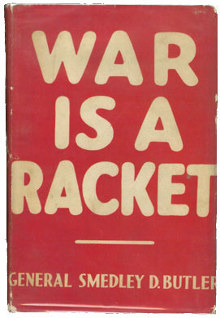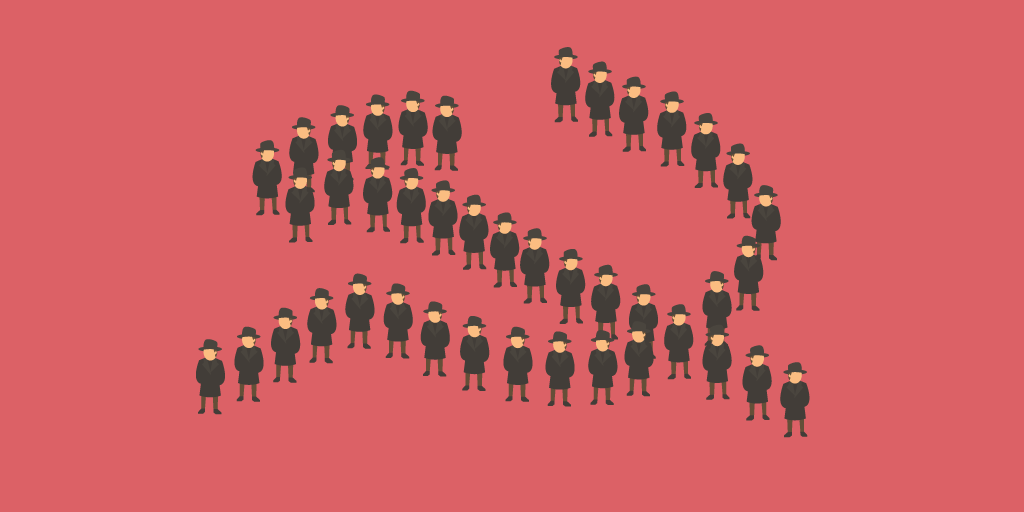European colonialism was heavily influenced by capitalism, in its pursuit of profits and raw materials, including gold. The pursuit of profits through the sale of commodified human beings i.e. slaves, was an extremely lucrative business. You and Todd are confused and self-deluded. Many wars are fought by the US and its Western allies, for $$$$$$$$$$$. The illegal war in Iraq, all of the trillions of dollars spent chasing after goat herders in Afghanistan. It's all a racket.
View attachment 801674
Brigadier General Smedley Darlington Butler
The antiwar classic by America's most decorated general,

War Is a Racket - Wikipedia
en.wikipedia.org
The tens of billions of dollars that we've recently spent in Ukraine, filling the coffers of the military-industrial complex i.e. war profiteers, keeping that war HOT & PROFITABLE. It's all due to the private pursuit of profits (capitalism). Add the billions that we've already spent in weapons in Ukraine since 2014, to feed the war between the Kyiv government and the Russo Ukrainians of the Donbas.
When one factors in all of the lives that have been lost as a result of government policies purchased by capitalists to protect and serve their vested interests. It amounts to hundreds of millions of people.
What is the death count of capitalism?
222,500,000+ Deaths due to certain events:
- 100,000,000: Extermination of native Americans (1492–1890)
- 15,000,000: Atlantic slave trade (1500–1870)
- 150,000: French repression of Haiti slave revolt (1792–1803)
- 300,000: French conquest of Algeria (1830–1847)
- 50,000: Opium Wars (1839–1842 & 1856–1860)
- 1,000,000: Irish Potato Famine (1845–1849)
- 100,000: British supression of the Sepoy Mutiny (1857–1858)
- 20,000: Paris Commune Massacre (1871)
- 29,000,000: Famine in British Colonized India (1876–1879 & 1897–1902)
- 3,445: Black people lynched in the US (1882–1964)
- 10,000,000: Belgian Congo Atrocities: (1885–1908)
- 250,000: US conquest of the Philipines (1898–1913)
- 28,000: British concentration camps in South Africa (1899–1902)
- 800,000: French exploitation of Equitorial Africans (1900–1940)
- 65,000: German genocide of the Herero and Namaqua (1904–1907)
- 10,000,000: First World War (1914–1918)
- 100,000: White army pogroms against Jews (1917–1920)
- 600,000: Fascist Italian conquest in Africa (1922–1943)
- 10,000,000: Japanese Imperialism in East Asia (1931–1945)
- 200,000: White Terror in Spain (1936–1945)
- 25,000,000: Nazi oppression in Europe: (1938–1945)
- 30,000: Kuomintang Massacre in Taiwan (1947)
- 80,000: French suppression of Madagascar revolt (1947)
- 30,000: Israeli colonization of Palastine (1948-present)
- 100,000: South Korean Massacres (1948–1950)
- 50,000: British suppression of the Mau-Mau revolt (1952-1960)
- 16,000: Shah of Iran regime (1953–1979)
- 1,000,000: Algerian war of independence (1954–1962)
- 200,000: Juntas in Guatemala (1954–1962)
- 50,000: Papa & Baby Doc regimes in Haiti (1957–1971)
- 3,000,000: Vietnamese killed by US military (1963–1975)
- 1,000,000: Indonesian mass killings (1965–1966)
- 1,000,000: Biafran War (1967–1970)
- 400: Tlatelolco massacre (1968)
- 700,000: US bombing of Laos & Cambodia (1967–1973)
- 50,000: Somoza regime in Nicaragua (1972–1979)
- 3,200: Pinochet regime in Chile: (1973–1990)
- 1,500,000: Angola Civil War (1974–1992)
- 200,000: East Timor massacre (1975–1998)
- 1,000,000: Mozambique Civil War (1975–1990)
- 30,000: US-backed state terrorism in Argentina (1975–1990)
- 70,000: El Salvador military dictatorships (1977–1991)
- 30,000: Contra proxy war in Nicaragua: (1979–1990)
- 16,000: Bhopal Carbide disaster (1984)
- 3,000: US invasion of Panama (1989)
- 1,000,000: US embargo on Iraq (1991–2003)
- 400,000: Mujahideen faction conflict in Afghanistan (1992–1996)
- 200,000: Destruction of Yugoslavia (1992–1995)
- 6,000,000: Congolese Civil War (1997–2008)
- 30,000: NATO occupation of Afghanistan (2001-present)
/---/ Quick - swim to Cuba, where capitalists are shot at sunrise. You'll be at home chopping sugar cane in 110 degree blazing heat.
